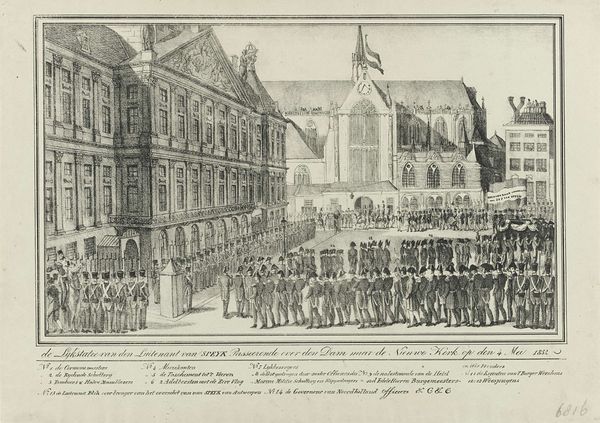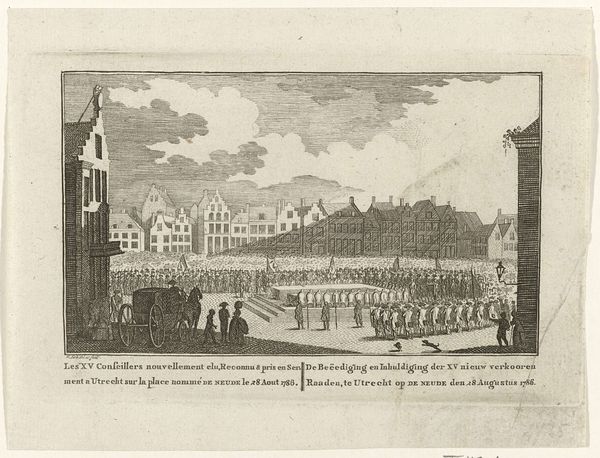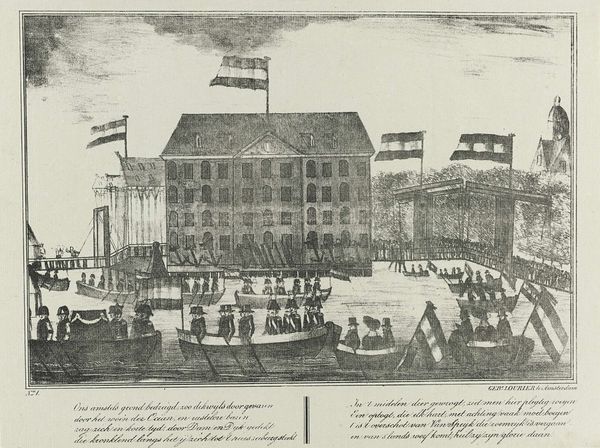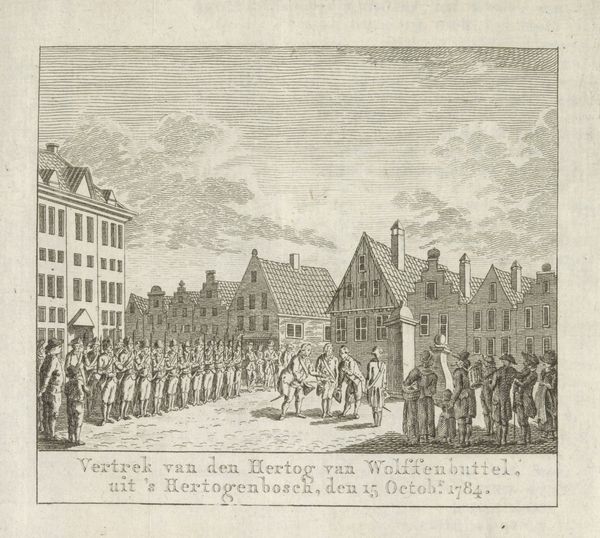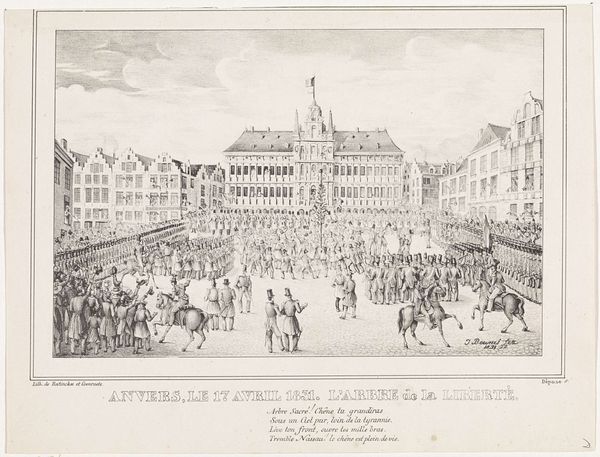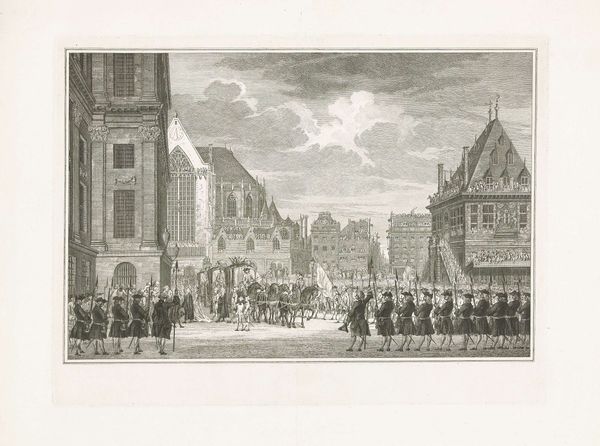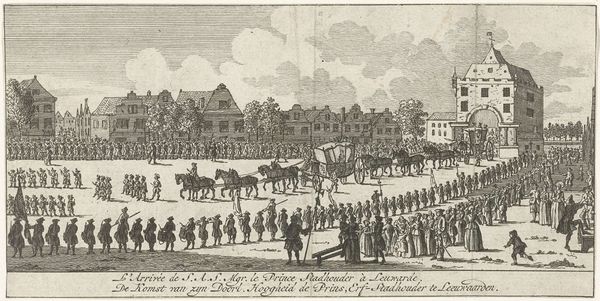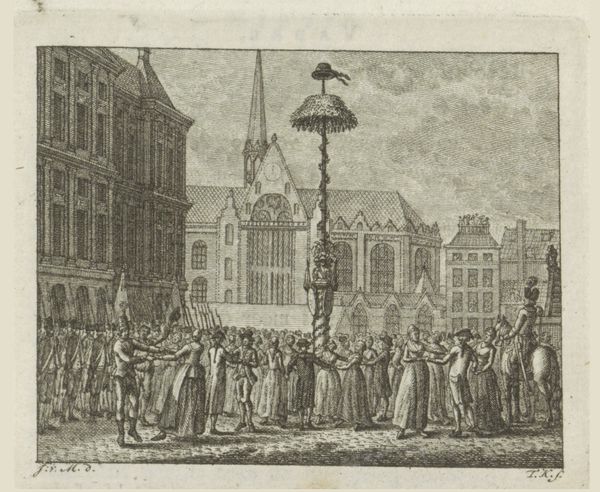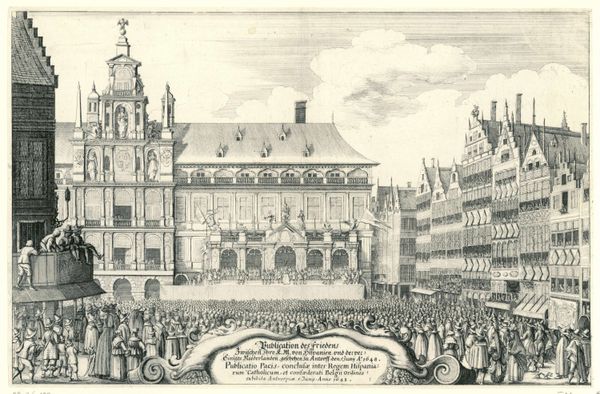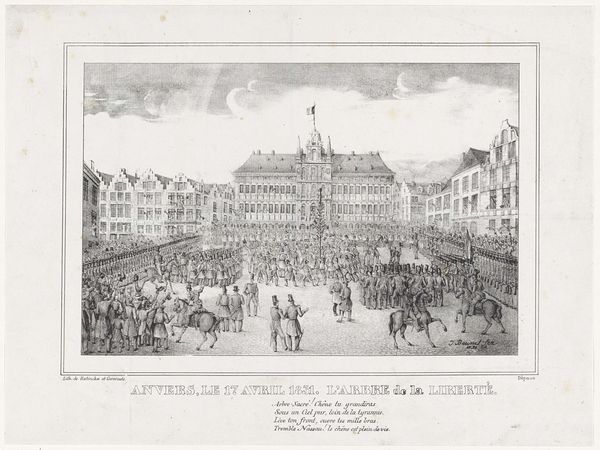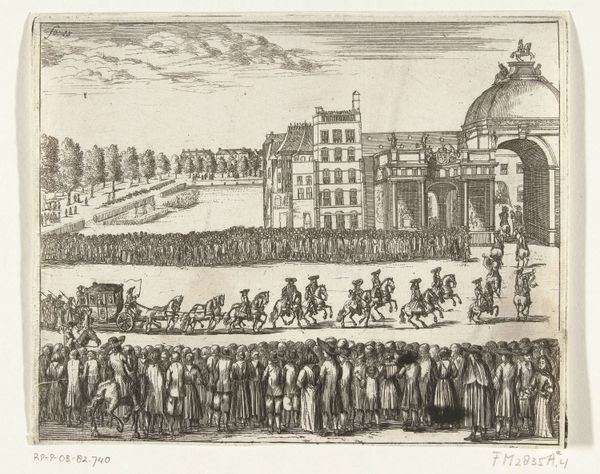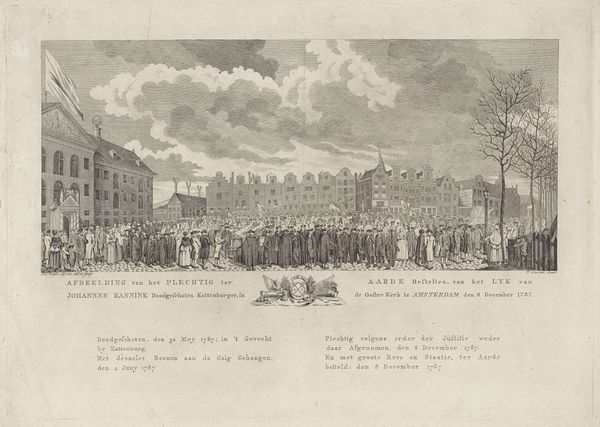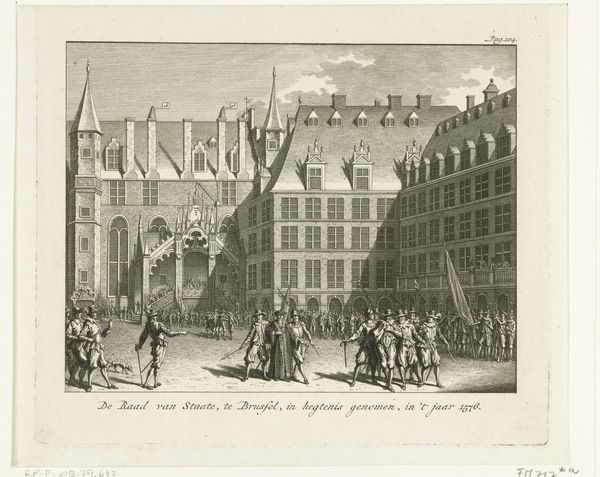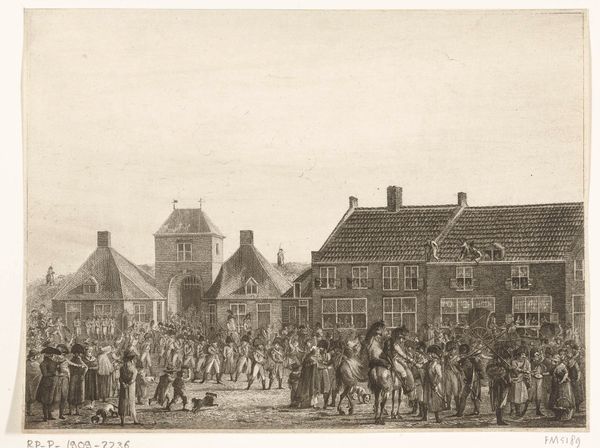
print, engraving
# print
#
romanticism
#
19th century
#
cityscape
#
history-painting
#
engraving
Dimensions: height 282 mm, width 363 mm
Copyright: Rijks Museum: Open Domain
This print, made in 1832 by an anonymous artist, depicts the arrival of Jan van Speijk’s funeral procession at Dam Square. It’s an engraving, a process involving considerable skill. The design is incised into a metal plate, inked, and then printed. Note how the sharp lines of the architecture contrast with the solemn procession. This effect is entirely dependent on the graphic nature of the medium, so different from painting. Engraving was essential for mass communication in the 19th century, reproducing images for books and newspapers. In this instance, it memorializes a Dutch naval hero, Van Speijk, who sacrificed himself to prevent his ship from falling into Belgian hands during the secession of Belgium from the Netherlands. Consider the amount of labor that went into producing this print, and how this medium helped disseminate nationalistic sentiment. The act of making itself participates in a wider political context.
Comments
No comments
Be the first to comment and join the conversation on the ultimate creative platform.
